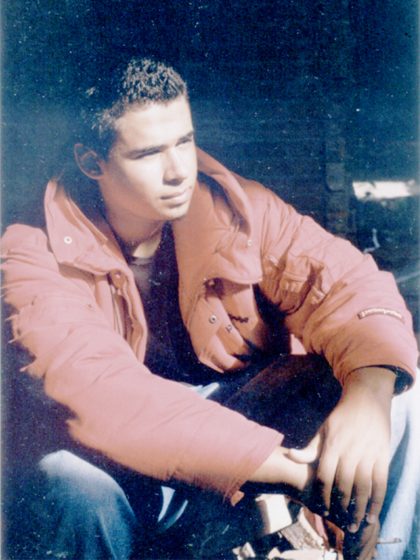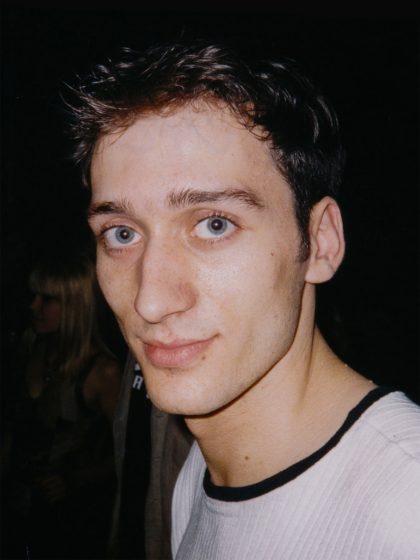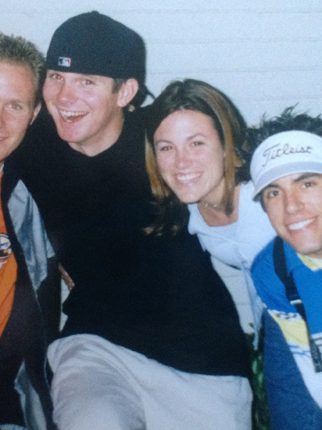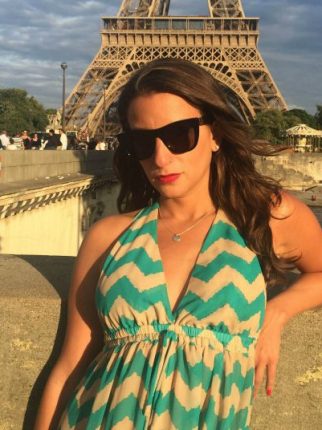The Night I Fell in Love With Dance Music: Chris Liebing
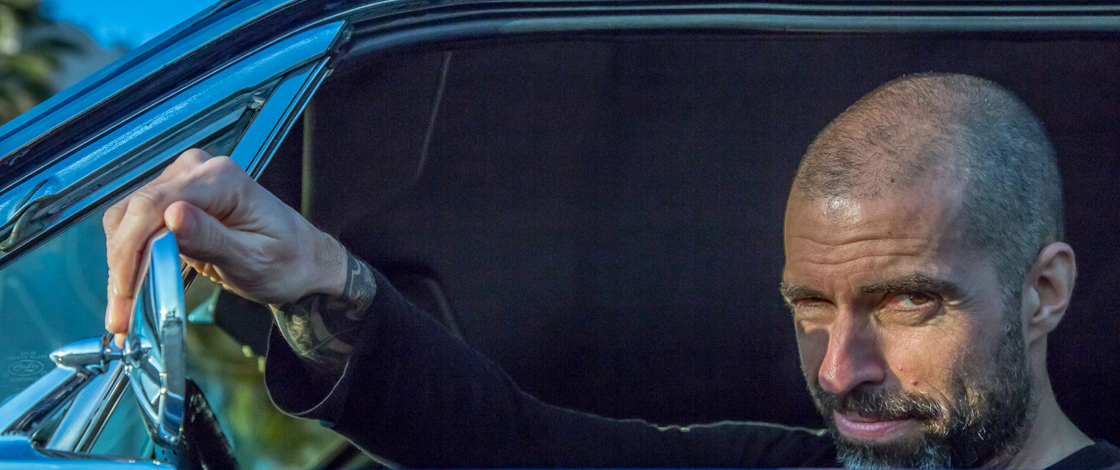
I was about 16 or 17 years old when I fell in love with dance music—or put more accurately, dancing to music. What’s the difference? It wasn’t what we call dance music today. It was more or like goth music and grunge rock.
We had a small club in the town where I came from that played everything from the Cure to the Ramones, that kind of stuff. You would just move to it. I’m not sure if you would call it “dancing,” but you were just grooving and moving to it—both feet on the ground, and you just move forward and backward. I feel like it’s the same thing I see people doing today—grooving and moving to the beat. It’s not a disco dance that they do.
It must have been so different for us Europeans than most Americans. When we were 13 or 14 years old, we started going to clubs. Our parents would drive us to what we called “discotheque” back then, and they would play music from 8pm till midnight. Then at midnight, all the parents would just pick up their kids again. The difference from a school dance is that we were allowed to drink alcohol. You had your little beers, or your vodkas & tonics and stuff like that, so you just learned how to go out, how to be in the club, from kind of an early age. If you were one of these people who were really up for going out at night, then you grew into dance music pretty quickly.
“It must have been so different for us Europeans than most Americans. When we were 13 or 14 years old, we started going to clubs… We were allowed to drink alcohol; you had your little beers or your vodkas & tonics. So, you just learned how to go out, how to be in the club, from kind of an early age.”
These clubs could play any kind of music, even R&B and that kind of stuff. It was mostly just a matter of what was open on a particular night. If it wasn’t goth and grunge, we’d go dance to good hip-hop. It was a really good selection of music back in the mid-to-late ‘80s. We already had a kind of DJ culture.
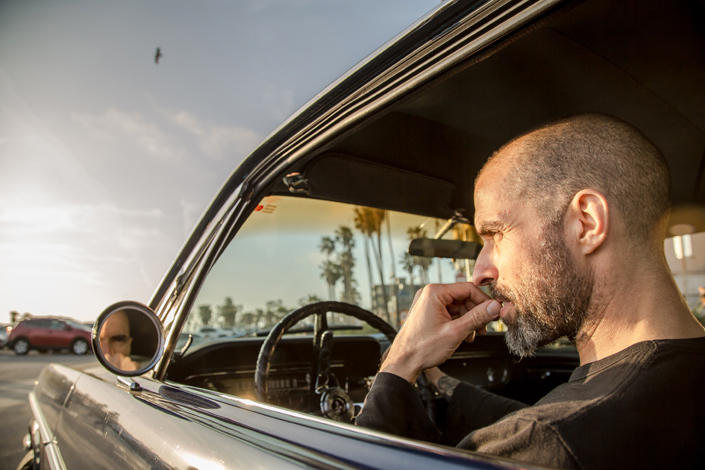
I would go to all these places. Certain friends went to only certain places, but I somehow liked it all. I was listening to a little bit of black music and this new-romantic ‘80s pop music. Depeche Mode was a band that quite heavily played back then. I’m still one of the biggest fans. The Cure was big—their Disintegration album. I remember dancing to “Pictures of You” endlessly. There was also the Red Hot Chili Peppers’ Blood Sugar Sex Magic. “Give it away, Give it away, Give it away, now!” All this stuff was being mixed with classic David Bowie. Of course, some places were more into chart stuff, but it was not that bad. We had German bands like Snap! and all the Euro dance stuff.
My first two or three years of making money as a DJ was at a student club. The owners were happy only if the people were dancing, so I tried to achieve that by playing stuff you’d hear on the radio. I always had things to play that everybody danced to—Chaka Khan’s “Aint Nobody”—stuff like that.
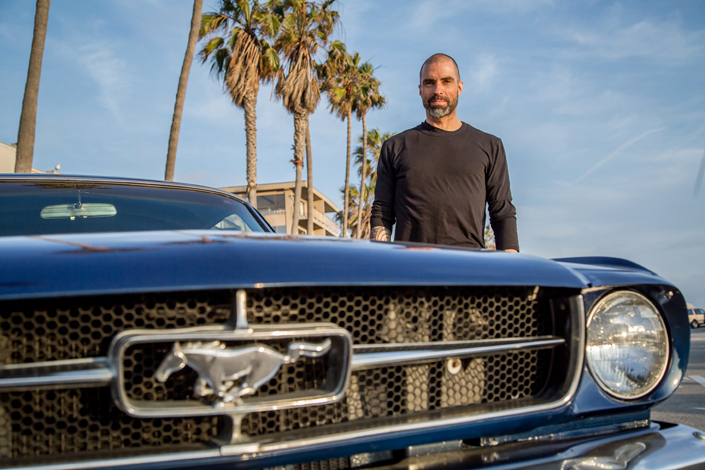
I kinda missed a bit of the beginning days of Frankfurt techno. I never really went to clubs there. I discovered the harder stuff, the darker stuff, in the record store. I got really interested in the Frankfurt sound—mainly Eye Q and Harthouse Records—but also some Belgian labels like R&S. All that stuff was just really exciting. It was just blowing up, and it got way more abstract than the radio music I played before. One record that stands out in particular is “Adventures of Dama” by Cybordelics on Harthouse. What a monster record!
I never tried to put techno into my set, because the owner of the club where I played didn’t want to have techno beats. There was a little sign with this hand-drawn dancing figure on a piece of paper that was crossed out. Underneath it said, “We Don’t Play Techno.” Like, don’t even ask. But that Cybordelics record was the first one I actually put on in the middle of the night. It was like, “I really don’t give a shit what’s going to happen now. I just want to see what’s happening on the dancefloor.” That was the moment when I thought, “Wow. This is getting somewhere. This is different.” If I could find a way to play his music at the right time, the right vibe, the right mood, I could really elevate things and take it to the next level, musically.
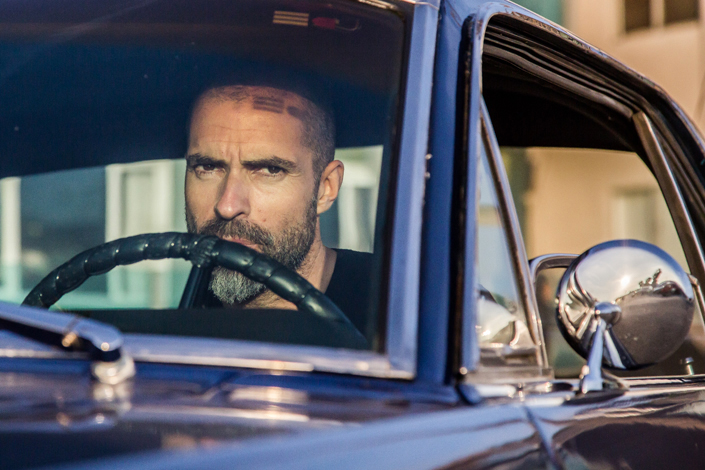
I knew after that first night it was going to be super difficult for me to stop playing this music. But I barely had any money, so I had to keep the DJ gig I had, even though my heart was now somewhere else. I knew I couldn’t just get another job somewhere as a techno DJ. There were already a lot of techno DJs out there at that time. Then in 1993, the owner of the club decided he didn’t want to run it anymore. He offered to let me take over and turn it into a techno club. So I did. I took the club, and I hired myself as the techno DJ. And I had to run it, which I’m really bad at, so it only lasted one and a half years until I was completely bankrupt. But it was an amazing, fun time.
When the club closed down, I made a move to Frankfurt. I said, “That’s it. I’m just gonna continue to DJ and start producing music.”
Follow Chris Liebing on Facebook | Twitter | Instagram

